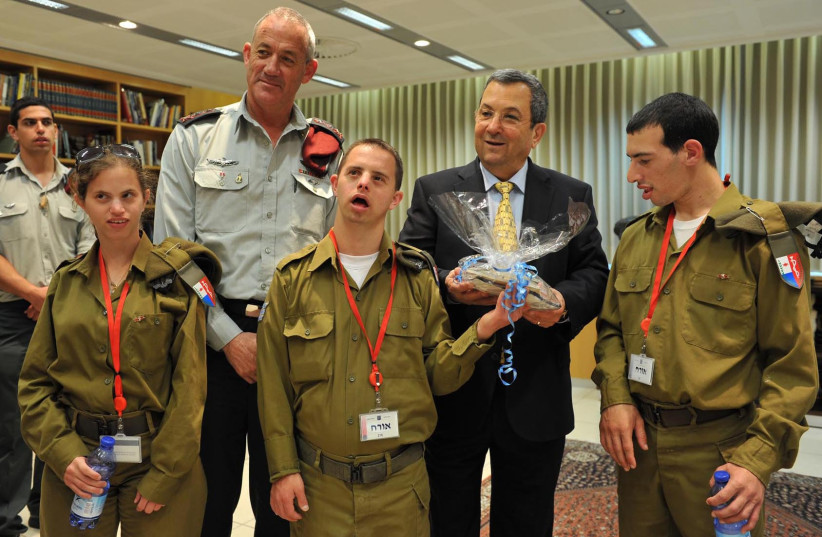Every year at the beginning of December, we mark “International Day of Persons with Disabilities” (December 3), an awareness day created by the UN to promote the rights and enhance the well-being of people with disabilities. While I applaud this important initiative, I am troubled by the implication that just one day a year suffices to effectively raise awareness and promote real change for the disability community.
So, why do we settle for just one awareness day? Don’t we all experience the impact of disabilities on our lives each and every day? Whether due to injury, illness, accident or aging, disability touches us and the ones we love; it engulfs us from all sides. In truth, life is a non-stop battle with disability and human frailty.
While these are the facts the ground, we are not at all comfortable with this image of our reality. We would much prefer to focus on human successes and heroics, on how much we have achieved as a society.
During my service in the IDF, my unit inundated us with slogans like “Nothing is impossible” and “We can accomplish anything.” Many of those who died or were wounded in battle immediately became heroes and legends.
Similarly, my parents, both of whom were born in Israel during the British Mandate era, were part of a generation that never cried. They suppressed and hid any signs of weakness. I never saw them cry, not even when my brother, Eran, was killed during the Yom Kippur War. They always bit their lips and stood straight, no matter how hard it got.

I grew up and was schooled in a society that lauded and valued healthy, strong and heroic people. Dealing with loss at home was heroic. “Of course Doron has to continue his combat service,” my parents would say, “There is no other option.”
The first person to truly teach me about the world of disability was my son, Eran. Although he passed away nearly 15 years ago, Eran still remains the greatest teacher of my life. Born with high-level autism and severe developmental disabilities, he never spoke or made eye contact. He never even called me abba.
But Eran opened our eyes to the true nature of humanity by taking the veil that hid society’s shame of the weak, the helpless and those struck by fate – the same veil that often hides abuse, discrimination, racism, cruelty, neglect and hypocrisy – and tearing it to pieces.
When we echo the mantra “Never leave a man behind,” are we only referring to those wounded on the battlefield, or do we also understand our obligation to provide ongoing love and support to those who require assistance every day of their lives? Do we understand the importance of helping them bathe, eat, get dressed and deal with bureaucracy?
When we encourage each other to “show deference to the elderly,” do we mean that their care should be handed over to foreign aides while the healthiest and most creative among us continue to fuel the engine of this “Start-Up Nation”? How long will we chase excellence while running away from our societal responsibilities? How long will we let our arrogance and pride shelter us from the realities of disability?
WHILE IT is important to build, create and strive for excellence, we must also place the appropriate emphasis on mutual responsibility and highlight its centrality in our growth as a society. The way in which we relate to the most vulnerable among us, those with disabilities and multiple challenges, constitutes our greatest test. It is our communal responsibility to provide them with appropriate care, representation and opportunities for advancement every day of the year.
Our societal transformation will begin when we launch mass volunteering initiatives in every school, bringing students into senior residences, hospitals and centers for individuals with disabilities to spread joy, lend a hand and learn about the realities of disability, fostering empathy and promoting true inclusion.
At the same time, we must open our schools, community centers, houses of prayer and businesses to people with disabilities, reassessing our facilities and retooling our programming and offerings to be more inclusive and ensure that everyone has access to education, enrichment and gainful employment.
When we set these critical changes into motion, we will be on our way to becoming an exemplary society, though it will require constant work to maintain it.
In this new world, there will be no need to set aside a single day for people with disabilities, because their care, development and inclusion will be part of our daily lives. When we reach that point, we will value our healthy morals and strong convictions for good above all else, and our heroism will be found in our humanity. Only then can we call ourselves an exemplary society.
The writer is a decorated IDF soldier, Israel Prize Laureate, and the founder and chairman of ADI Negev-Nahalat Eran (www.adi-israel.org), a residential and rehabilitation village in Israel’s south. He is committed to empowering Israel’s disability community and advancing disability inclusion, equity and access around the globe.
